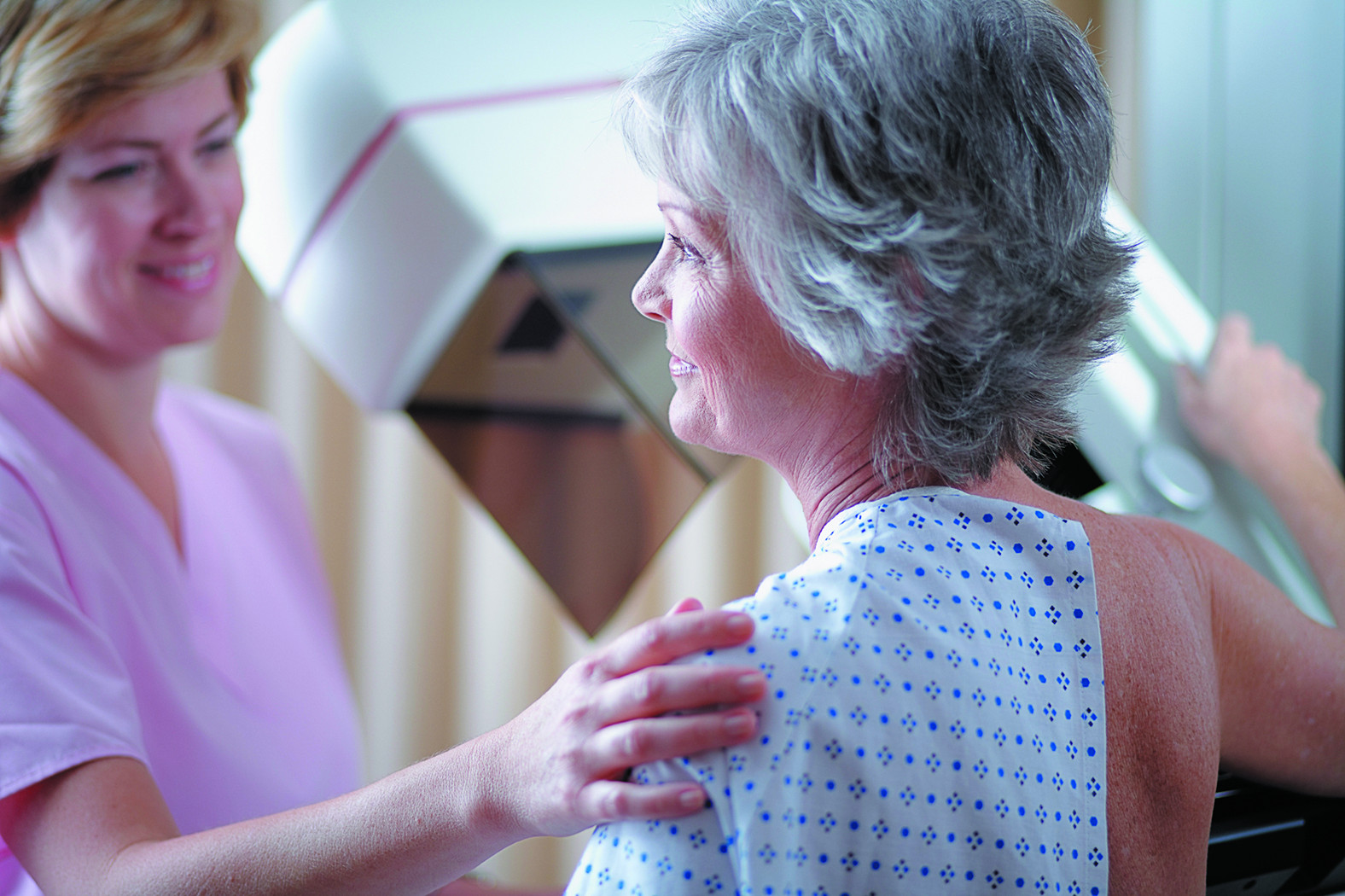Recent Blog Articles

Testosterone-blocking drugs boost heart disease risk when given in combination

Parenting isn't easy: Two important skills can help

Does sleeping with an eye mask improve learning and alertness?

Do tattoos cause lymphoma?

Hot weather hikes: Staying safe when temperatures spike

Cannabis drinks: How do they compare to alcohol?

What is Lewy body dementia?

Dog bites: How to prevent or treat them

Ever read your medical record? Here's why you should

Shining light on night blindness
Screening Tests for Men Archive
Articles
New way to use PSA test might identify men who need aggressive prostate cancer treatment
In the journals
Prostate-specific antigen (PSA) tests are used to help identify men who may have a higher risk of prostate cancer. But a study published online Jan. 12, 2017, by JAMA Oncology, describes a new way to use PSA that may pinpoint men who are likely to die early from prostate cancer that returns after initial treatment.
The researchers used data from a randomized trial of 157 men whose localized cancer was treated with either radiation alone or radiation along with six months of androgen deprivation therapy. The men were then followed for 16 years.
Cholesterol testing at home: It may be faster, but is it better?
If you don't mind pricking a finger, you can check your cholesterol without sitting around in a doctor's waiting room or laboratory. Devices available in pharmacies or through the Internet make this easy to do at home. But is it worth doing?
The makers of home cholesterol tests rightly tout their products as faster than visiting a doctor. You prick your finger, gently squeeze a few drops of blood onto a test strip or into a small "well," and you get the results in a few minutes, instead of waiting a few days.
The family history of cancer
If cancer runs in your family, there is much you can do to recognize your potential risk and catch the disease before it strikes.
Image: filipefrazao/Thinkstock
You may remember stories of your father's military service and your mother's hometown, but how much do you know about your family's medical history? In particular, do you know whether anyone on your mom or dad's side ever had cancer?
"Family history can be one of the first lines of defense in preventing cancer," says Dr. Huma Q. Rana, clinical director of the Center for Cancer Genetics and Prevention at Harvard-affiliated Dana-Farber Cancer Institute.
New approach identifies returning prostate cancer
Researchers have mapped patterns of prostate cancer recurrence following surgery, which may help doctors find the best way to treat men whose cancer has returned. About 30% of men who have prostate cancer surgery will have a recurrence, according to the study in the Journal of Urology.
Beware of low diastolic readings when treated for high blood pressure
New research has linked heart tissue damage to blood pressure treatments that drive diastolic pressure (the bottom number in a reading) too low.
Top screenings to avoid cancer
Talk to your doctor to nail down your cancer risk, and check this list to see which tests may help save your life.
Images: Monkey Business Images/Thinkstock
Recommendations for cancer screenings sometimes change, and it can be confusing about which tests you need and when. "It's best to talk to your doctor about your cancer risk factors and family history, learn which screenings are right for you, and then develop and stick to a screening schedule," says Dr. JoAnn Manson, chief of preventive medicine at Harvard-affiliated Brigham and Women's Hospital.
Routine screenings
Other screening tests
Some screenings are not recommended routinely but may be important based on your cancer risk.
Lung cancer. The American Lung Association recommends low-dose computed tomography to detect early signs of lung cancer for heavy smokers ages 55 to 74 who have a 30 pack-year smoking history (equivalent to one pack per day for 30 years) and who have smoked within the past 15 years. The USPSTF extends the screening age to 80. If you're not in this group, you should not have routine screening; the risk from radiation exposure and potential unnecessary follow-up testing is not worth the small chance of benefit.
Skin cancer. The USPSTF says there's not enough evidence to recommend regular visual skin exams by a doctor to screen for skin cancer, and that screenings increase the risk for unnecessary biopsies, overdiagnosis, and overtreatment. The American Academy of Dermatology suggests that all people conduct skin self-exams and report any unusual spots on their skin to a dermatologist.
People with an increased risk for melanoma, the deadliest form of skin cancer, should talk to a dermatologist about how often they should get a skin exam.
What about a PSA test?One of the most debated screenings is the blood test used to look for prostate cancer in men. It measures the level of a protein in the blood called prostate-specific antigen (PSA), which can rise when prostate cancer develops. In 2012, the USPSTF recommended against routine PSA tests, saying they raise the risk of unnecessary follow-up testing and treatment, which can cause problems such as incontinence and erectile dysfunction. Recent evidence shows that fewer men are being screened as a result. "The sentiment among many physicians now is against offering routine PSA testing for men, especially when nearly every study has not shown any tangible benefits for those who have undergone testing and treatment," says oncologist Dr. Marc Garnick, editor in chief of Harvard's Annual Report on Prostate Diseases. The American Cancer Society suggests that men 50 or older (at average risk for prostate cancer) make the decision about screening with their doctor, but only if they have a life expectancy of at least 10 years, and only if they have been advised about the uncertainties, risks, and potential benefits of prostate cancer screening. |
A new look at colon cancer screening
Don't be intimidated about screening tests. The latest guidelines suggest you can choose from multiple strategies.
Image: Bigstock
Colon cancer continues to be the country's second leading cause of cancer-related deaths and the third most common cancer in men, according to the CDC.
It almost always develops from precancerous polyps (abnormal growths). Screening tests, which are recommended for men ages 50 to 75, help find and sometimes aid removal of polyps before they become cancer. (Men older than 75 may still benefit, depending on their health.)
Do you need a depression screening?
News Briefs
Don't be surprised if your doctor screens you for depression at your next visit. An update to the U.S. Preventive Services Task Force recommendations for screenings, published Jan. 26, 2016, in The Journal of the American Medical Association, suggests that all adults 18 or older, including older adults, should be screened for depression when there are systems in place to ensure accurate diagnosis, effective treatment, and appropriate follow-up. The previous recommendations encouraged selective screening based on professional judgment and patient preferences. The new recommendation also includes pregnant and postpartum women for the first time. "Older adults often struggle with chronic disease, or the loss of a loved one, which may lead to depression," says Dr. Michael Craig Miller, an assistant professor of psychiatry at Harvard Medical School. "Screening is just a way to open the door for people who might otherwise not get the help they need." Dr. Miller says screening can simply be asking if, over a two-week period, you have either had little interest or pleasure in doing things or felt depressed and hopeless.
Do you really need that cancer screening?
Image: Thinkstock
A research letter published online Jan. 21, 2016, in JAMA Oncology suggests that many older adults are getting unnecessary cancer screenings. Researchers looked at questionnaire answers from about 150,000 seniors (ages 65 or older) across the country, and found that about half had received prostate-specific antigen (PSA) testing or mammography in the past year. But a third of those screened did not have a 10-year life expectancy, a major guideline for screening. Unnecessary screening rates varied by state—for example, 11% in Colorado and about 20% in Georgia. "Undergoing a screening test may actually cause more harm than good, especially with older patients or those with significant medical conditions," says Dr. Marc Garnick, an oncologist at Beth Israel Deaconess Medical Center and editor in chief of Harvard's Annual Report on Prostate Diseases. So talk to your doctor about the guidelines. Both the American Cancer Society (ACS) and the U.S. Preventive Services Task Force (USPSTF) recommend routine mammograms every two years for women ages 55 to 74. The ACS does not recommend mammograms in this age group if a woman has a life expectancy of less than 10 years.
For all men, the USPSTF recommends against routine PSA testing. The ACS suggests that men 50 or older (at average risk for prostate cancer) make the decision about screening with their doctor, but only if they have a life expectancy of at least 10 years, and only if they have been advised about the uncertainties, risks, and potential benefits of prostate cancer screening.
Test may diagnose prostate cancer more accurately
A study in the December 2015 issue of The Lancet Oncology found that a new test, called STHLM3, is more helpful at detecting aggressive cancer than traditional tests for prostate-specific antigen (PSA).
The STHLM3 test is a blood test that analyzes a combination of six protein markers, more than 200 genetic markers, and various clinical data, such as age, family history, and previous prostate biopsies.
Recent Blog Articles

Testosterone-blocking drugs boost heart disease risk when given in combination

Parenting isn't easy: Two important skills can help

Does sleeping with an eye mask improve learning and alertness?

Do tattoos cause lymphoma?

Hot weather hikes: Staying safe when temperatures spike

Cannabis drinks: How do they compare to alcohol?

What is Lewy body dementia?

Dog bites: How to prevent or treat them

Ever read your medical record? Here's why you should

Shining light on night blindness
Free Healthbeat Signup
Get the latest in health news delivered to your inbox!
Sign Up









